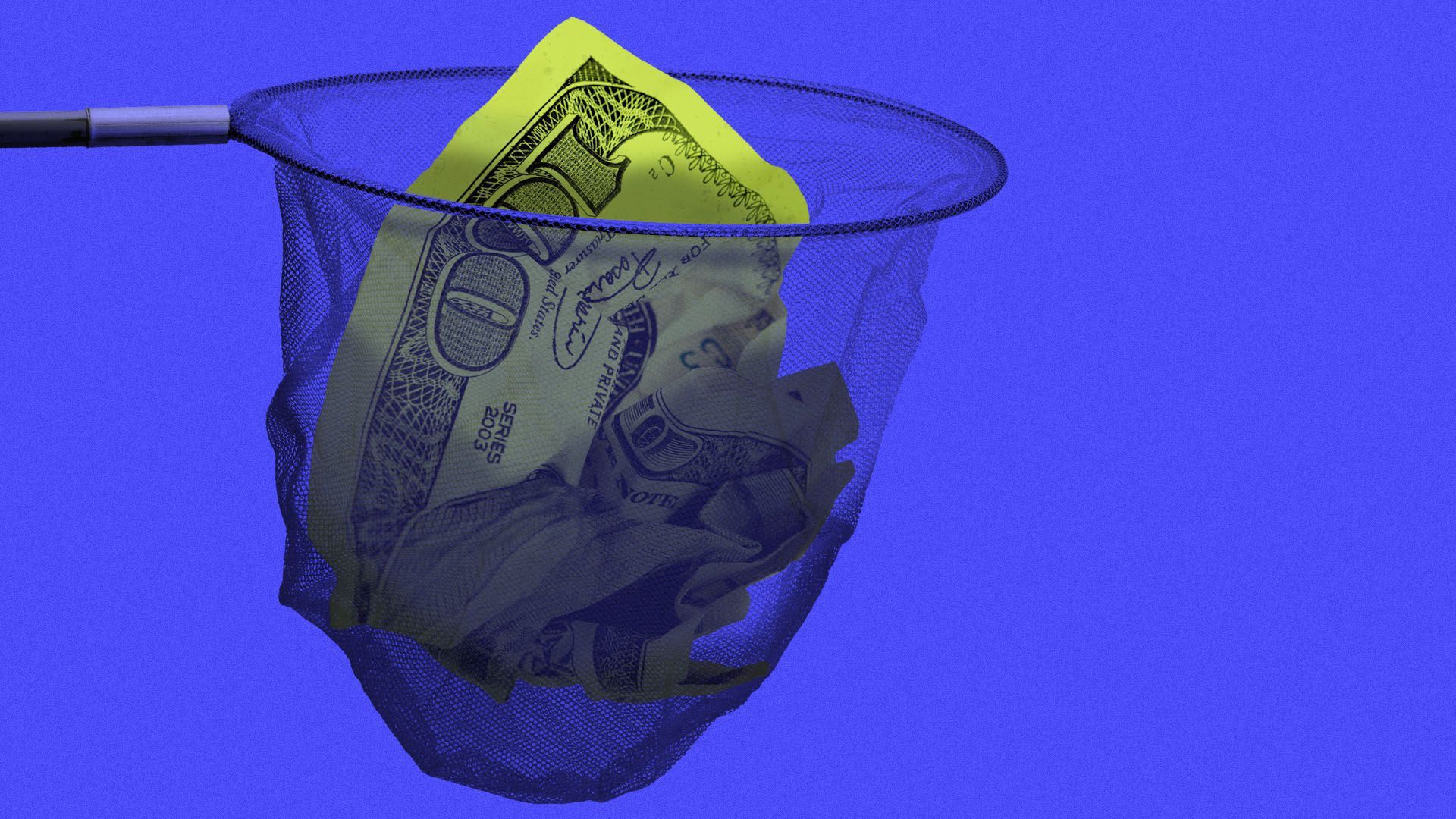The next stimulus takes center stage — just as it runs dry
Add Axios as your preferred source to
see more of our stories on Google.

Illustration: Sarah Grillo/Axios
Big Tech was buoyed by the exact thing that prevented the dreadful GDP report from being even worse in the second quarter: the pandemic stimulus measures.
Why it matters: The stimulus is in the spotlight as its key expanded unemployment benefits provision is set to lapse despite coronavirus cases surging across the country, reimposed lockdown measures and more businesses shuttering.
What's happening: Personal income soared by a staggering 7.3% in the second quarter from the prior three months — a phenomenon that doesn't typically happen in the middle of a recession.
- It was made possible by measures like the extra $600 in weekly unemployment benefits and the one-time stimulus checks, which made up for the collapse in wages.
- Strip out government support programs and personal income fell 6.1%.
The big picture: Big Tech executives, whose companies have become a symbol for the deep divide between the soaring stock market and the downward spiraling economy, touted these stimulus measures as a reason why their businesses thrived in the second quarter.
- What they're saying: The increase in demand for Apple products came down to a range of factors — including economic stimulus in the U.S, Apple CEO Tim Cook said during an analyst call on Thursday.
Worth noting: As the pandemic raged, these companies have come to represent a whopping 22% of the S&P 500.
- Their combined market value jumped by $250 billion in late trading after their earnings were released, giving these companies a bigger hold on the stock market.
- It's also a win for traders who have bet these so-far Teflon-protected companies would come out even bigger in the midst of the economic collapse caused by the pandemic.
Yes, but: Big Tech companies, along with others, are expressing concerns about what happens to the economy — and their business — after the stimulus runs dry.
- "We don’t know what the subsequent economic stimulus will look like. And to the extent that stimulus decreases in the future and recession lingers, that could impact consumer purchasing power for advertisers in areas like e-commerce," Facebook CFO Dave Wehner said on the company's analyst call.
Driving the news: The enhanced employment benefits millions of Americans are relying on will lapse.
- The Senate adjourned until next week, without a deal to extend the benefits (or even replace them with an alternative amount).
- There's also little progress on negotiations so far on a broader, supplemental stimulus package.
The bottom line: Hopes for a swift economic rebound are being downgraded, with analysts paring back estimates for Q3 growth as additional stimulus hangs in limbo.
